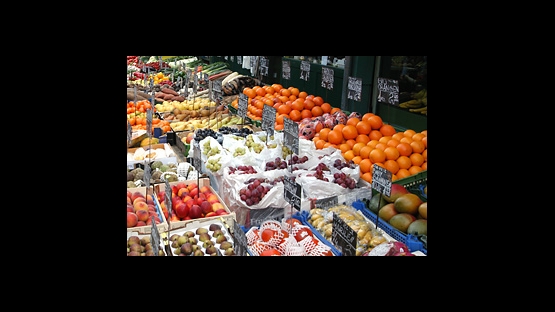In the Americas and South Africa, science is on a roll and fruit fly pests are dropping like... well... they´re dropping like flies. The results are higher quality products, reduced insecticide use, and more profitable markets, especially to big consumers like the United States.
On the heels of bright reports from Argentina earlier this year (see Story Resources), Nicaragua and South Africa are reporting big benefits from campaigns against fruit flies that can devastate crops.
- In Nicaragua, the first exports of bell peppers to the United States were announced this month. The first load of bell peppers will be followed by many more with an estimated initial export volume of 31,000 metric tonnes per year, an amount generating substantial revenue and jobs in one of the world´s poorest regions. The event marked the culmination of almost six years of cooperation and support through an IAEA regional technical cooperation project. Next up for export markets are tomatoes and papaya, among other fruits and vegetables being cultivated in newly created fruit-fly-free zones.
- In South Africa, the focus is on the Hex River Valley. Fruit fly populations there have dropped dramatically over the past four years, and so have costs of pest control. Before the project started, fruit fly control cost about R3.2 million, compared to about R1.2 million afterwards, a saving of about 67%. The progress toward that goal of fruit fly suppression is impressive. "In one season, the number of cartons rejected for export because of fruit fly damage has halved from 8% to 4%, the lowest it has ever been," notes Brian Barnes, the scientist coordinating the programme in South Africa and liaison to the IAEA. Annual savings from insecticide use amounted to US $220,000, he adds.
The projects get backing from scientists and project officers at the IAEA and UN Food and Agriculture Organization (FAO), who run a joint division based in Vienna. The two have teamed to technically support successful projects in many other countries, including Chile, Costa Rica, Guatemala, Mexico, Peru, Thailand, and Israel. They are experts in applying a technology known simply as SIT, short for the sterile insect technique, a form of biological pest control that suppresses and dramatically reduces fly populations in the wild.
Fruit flies are international quarantine pests. Their presence not only damages fruit and vegetables but results in heavy insecticide applications and limits the export market. Countries free of the pest, including the USA and Japan, are reluctant to import from regions that are not free of fruit flies.


